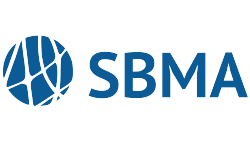In March 2020, President Trump signed into law the Families First Coronavirus Response Act, the initial coronavirus relief bill aimed at assisting families living in the United States. The new law requires small employers—those with fewer than 500 employees—to provide limited paid-leave benefits to employees who are affected by the coronavirus emergency. Small employers receive new tax credits and federal payroll-tax relief to pay for the new mandatory benefits.
Mandatory employee paid leave
The Act requires emergency paid sick leave. It is limited to $511 per day for up to 10 days (up to $5,110 in total) for an eligible employee in coronavirus quarantine or seeking a coronavirus diagnosis. An employee can also receive emergency paid sick leave of up to $200 per day for up to 10 days (up to $2,000 in total) to care for a quarantined family member or a child whose school or child-care location has been closed due to the pandemic.
The Act also requires that small-business employees obtain the right to take up to 12 weeks of job-protected family leave if the employee or a family member is in coronavirus quarantine or if the school or child-care location of the employee’s child is closed due to the coronavirus. The employer must pay at least two-thirds of the employee’s usual pay, up to a maximum of $200 per day, subject to an overall per-employee maximum of $10,000 in total family-leave payments.
Small-employer tax credits
The Act grants a new tax credit to small employers to cover the now-required payments to employees who take time off under the new law’s emergency sick leave and family-leave provisions.
Specifically, a small employer can collect a tax credit equal to 100% of qualified emergency sick-leave and family-leave payments made by the employer according to the Act. However, the credit only covers leave payments made during the period beginning on a date specified by the Secretary of the Treasury and ending December 31, 2020. The beginning date will be within 15 days of March 18, 2020, when the Act became law.
The credit increases to cover a portion of an employer’s qualified health-plan expenses that are allocable to emergency sick-leave and family-leave wages.
The new credit offsets the Social Security tax component of the employer’s federal payroll-tax bill. Any excess credit is refundable, meaning the government will issue a payment to the employer for the excess.
Warning: The credit is not available to employers that are already receiving the pre-existing credit for paid family and medical leave under Internal Revenue Code Section 45S.
Small-employer FICA tax relief
Sick-leave and family-leave payments mandated by the Act are exempt from the 6.2% Social Security tax component of the employer’s federal payroll tax that generally applies to wages. Employers must pay the 1.45% Medicare tax component of the federal payroll tax, but they can claim a credit for that outlay.
The Families First Coronavirus Act is just the first step of many that are sure to be taken by the U.S. government as they continue to face the COVID-19 outbreak. You can read answers to common questions, apply for aid, and more on the Department of Labor’s Q&A page here.
For a list of COVID-19 resources, click here.


